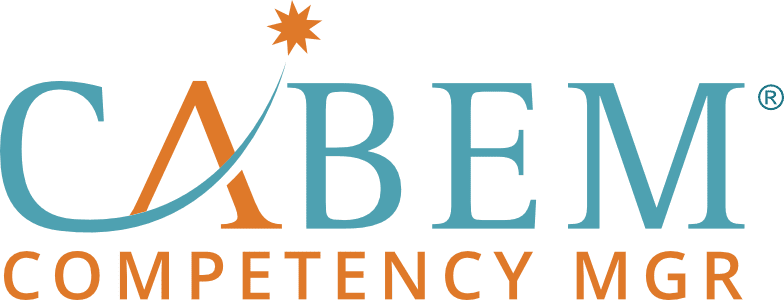Reward Skills Through Badging, CEU’s, and Hours
Rewarding skills and employee growth and success is critical. In any organization, each role requires varying skills and expertise in order to succeed. When team members are lacking in skills, there is a negative correlation to their performance. It is critical for leaders to determine if team members have any skill gaps that are preventing them from reaching their full potential.
Simply training employees is not enough. It is crucial that the skills and development of employees is tracked. This will ensure that they have the skills and qualifications needed to do their jobs effectively. In addition to tracking progress, it is critical that employees receive proper recognition for the achievement. Employees put their heart and soul into a project or presentation and nailed it. The acknowledgement of the achievement is a major boost for employee morale and performance.
This article takes a closer look at the value of tracking progress in the workplace with a competency management system, as well as the importance of recognition of that progress. It will also take a closer look at 3 common ways to track and recognize an individual’s skills and knowledge in Competency Management: badging, Continuing Education Units (CEU’s), and hours.
The Benefits of Tracking and Rewarding Progress in the Workplace
Tracking the qualifications of your employees allows leaders of an organization to clearly see the strengths and weaknesses within a staff. Tools and training can then be put in place to address the areas that need improvement. This elevates a team’s expertise and allows them to perform at a higher standard. When employees feel confident and secure in their skills, they contribute more efficiently and effectively to the overall organization.
When employees are rewarded for their contributions, they feel ownership and pride and they are more inclined to work just as hard next time. This recognition also helps connect them to the organization, elevates their performance, and increases the likelihood that they will stay at the organization.
Establishing a culture of learning in the workplace is of immense value in today’s dynamic and ever-evolving professional landscape. A learning culture fosters an environment where employees are encouraged and empowered to continuously expand their knowledge, skills, and expertise. It promotes a growth mindset and a proactive approach to personal and professional development. By investing in learning opportunities, organizations demonstrate their commitment to employee growth and well-being, which ultimately leads to higher levels of engagement, job satisfaction, and retention.
Additionally, a culture of learning cultivates innovation, adaptability, and agility, enabling employees to keep pace with industry trends and emerging technologies. It encourages collaboration, knowledge sharing, and continuous improvement, enhancing overall organizational performance and competitiveness. Ultimately, a workplace that embraces a culture of learning becomes a hub of creativity, motivation, and excellence, driving both individual and collective success.
3 Common Ways to Track and Recognize Achievements in the Workplace
Badging:
Badging is a visual representation of a person’s skills and accomplishments in a specific area. It is a digital or physical image that represents a certain level of expertise, often issued by an organization or certification authority. Digital badges have provided an automated, secure, and cost-effective way of verifying that an achievement has been made. A digital badge is an indicator of an accomplishment or skill that can be displayed, accessed, and verified online. It is a visual representation of an achievement that can be embedded in different places. This powerful tool identifies and validates the rich array of individuals’ knowledge, skills, accomplishments, and competencies.
Digital badges are one part of the larger digital credentialing environment. There are lots of ways to recognize an achievement, and digital badges serve as one means to recognize learning or achievement and provide digital proof of that achievement.
As professional development becomes more learner-centered, badges provide a more personalized and flexible method for recognizing achievements. Badges motivate employees to develop their skills and showcase their strengths. It provides a way for employers to recognize their employees’ achievements and boost self-esteem. All humans have the desire to achieve goals and feel valued. Digital badges help satisfy this need.
Continuing Education Unit (CEU):
A CEU is a measure used in continuing education programs to assist the professional to maintain their license in their profession. CEUs are required to keep your certifications current. CEU’s are a unit of measure used to quantify participation in continuing education and professional development programs. One CEU is equal to ten hours of participation in an educational program or activity. CEUs are often required to maintain professional certifications and licenses.
Continuing Education Units (CEUs) play a vital role in tracking and rewarding skills in various professional fields. CEUs provide a structured framework for individuals to enhance their knowledge, stay updated with industry trends, and acquire new competencies. The value of CEUs lies in their ability to validate and quantify the effort and commitment invested by individuals in their professional development. By participating in relevant workshops, courses, conferences, and other educational activities, individuals earn CEUs, which serve as a tangible measure of their ongoing learning and skill advancement.
CEUs not only demonstrate an individual’s dedication to continuous improvement but also provide employers with a standardized and objective way to evaluate and reward their employees’ skills. CEUs contribute to professional growth, career advancement, and increased marketability by showcasing a commitment to staying current in a rapidly changing work environment. Additionally, CEUs help organizations ensure that their workforce maintains the necessary knowledge and skills to excel in their roles, promoting overall productivity and performance. Therefore, CEUs serve as a valuable tool for tracking and rewarding skills, benefiting both individuals and organizations alike.
Hours:
Hours refer to the time spent acquiring knowledge and skills in a particular area, such as through training, coursework, or on-the-job experience. Hours can be used to quantify and track progress toward a specific learning objective or certification.
Tracking employees’ working hours is the key to knowing how time is spent – both on an individual level and in the business overall. It is crucial for a productive, healthy business. It is fairly simple to record the employee’s working time, and it can lead to many improvements in areas such as team productivity, easier invoicing, and ensuring that projects proceed as budgeted.
Badging, CEUs, and hours can help individuals and organizations to track and recognize progress in developing specific competencies. By recognizing and rewarding skill development, they can also serve as motivators for ongoing learning and professional development.
Competency Management Software Is The Key
Competency management software serves as the key to effectively tracking and rewarding skills in the workplace. With the rapid pace of technological advancements and evolving job requirements, it is crucial for organizations to have a comprehensive system in place to identify, measure, and recognize employee competencies. Competency management software, such as CABEM’s Competency Manager, enables the systematic tracking of skills, qualifications, and certifications, providing a centralized database that allows employers to assess the proficiency levels of their workforce. It enables personalized development plans and targeted training initiatives based on identified skill gaps, fostering continuous improvement and growth.
Ultimately, competency management software streamlines the process of tracking and rewarding skills, enabling companies to optimize their workforce, enhance employee satisfaction, and drive overall organizational success. With flexible competency tracking and management options, you’ll get a better picture of competencies across the entire enterprise.
The CABEM Competency Manager is a configurable platform that allows you to model your organizational hierarchy to assign, prioritize, track, audit, and report activities by role, team, or organization. It is a workforce development system that provides an at-a-glance view of an organization’s competency framework for every location, department, role, and individual across the enterprise.
The built in LMS includes test taking, video playback, instructor led training and guided learning. Employees avoid missing key deadlines with automated notifications. Users are alerted to new and overdue competencies, certification renewals, and approaching requirements and training.
CABEM’s Competency Manager includes powerful reporting capabilities out of the box. The interactive Activity Grid matrix is a skills inventory that makes it easy to zero in on user progress toward completion. The Activity Grid allows Managers, Mentors, and System Administrators to view the details of a user’s progress for all assignments, as well as the ability to act through approval signoffs, assessments, and multiple other actions right from within the same screen. Discriminating filters provide the most efficient way of accessing important business intelligence in real-time.
CABEM’s Competency Manager allows organizations to create competencies and map them to departments, roles, locations, and other segments across the enterprise. Contact us today to get started.

